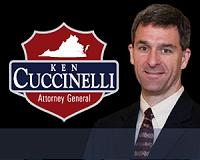| . |  |
. |
Paris (AFP) May 30, 2010 UN climate talks resume in Bonn on Monday with negotiators branded by caution after the near-fiasco of the Copenhagen summit six months ago. Excess ambition is being blamed for the failure of Copenhagen, where world leaders were to have blessed a post-2012 pact to tame global warming. Instead, the big show became a stage for finger-pointing and last-night wrangling as the planet's major carbon polluters grappled over a document to save face. Negotiations get back in gear on Monday for the 12-day mid-year meeting under the UN Framework Convention on Climate Change (UNFCCC). But political impetus seems to have drained away and the atmosphere is chastened. "The mood is one of realism and accepting incremental changes rather than one 'Big Bang' agreement, which was what was attempted in Copenhagen and just fell flat," said Saleemul Huq, senior researcher at the International Institute for Environment and Development (IIED) in London. Even the UNFCCC's chief, the perennially optimistic Yvo de Boer, who led the charge to Copenhagen and quit in the aftermath, is grim. Any treaty is unlikely to be completed before the end of 2011, he told a press conference last week. "It's extremely unlikely that we will see a legally-binding agreement in Cancun," de Boer admitted, referring to the end-of-year ministerial gathering in Mexico. "I think that especially developing countries would want to see what an agreement would entail for them before they would be willing to turn it into a legally-binding treaty." The Bonn talks have to start digging seriously through the morass of problems that bedevilled Copenhagen. Who should make the deepest cuts in greenhouse gases? How can promises be policed? How should rich economies help poor countries -- the least to blame for climate change -- bolster defences against rising seas, drought and flood? Adding a toxic ingredient to the mix is the fate of the so-called Copenhagen Accord. The document sets a voluntary goal of limiting warming to two degrees Celsius (3.6 degrees Fahrenheit). It was brokered by a couple of dozen leaders in the summit's desperate final day but is viewed privately by many developing countries as worthless or a betrayal. "The only country that thinks it (the Copenhagen Accord) has any life is the United States," said Huq. "Nobody else does. They are totally isolated on this." To show that the accord has credibility -- and restore trust in the overall process -- developing countries are calling on the rich world to put its money where its mouth is. In Copenhagen, the European Union (EU), the United States, Japan and other wealthy countries pledged 30 billion dollars in aid from 2010-2012, with a vaguer promise of mustering 100 billion dollars a year by the end of the decade. "We need real implementation of the fundings, real action on the ground," said Dessima Williams, chief negotiator of Grenada, representing the Association of Small Island States (AOSIS). "There is absolute and continued urgency." Outside the UNFCCC arena, progress is being made in smaller, nimbler fora. On Thursday, a Franco-Norwegian initiative on reducing carbon from deforestation rustled up four billion dollars for action up to 2012, as well as a promise by Indonesia to introduce a two-year freeze on forest clearance. But progress within the UN temple, where consensus among 194 nations is required, is plodding. The delay in fixing up a new climate treaty casts a pall over the Kyoto Protocol, the only international accord to impose legally binding limits on greenhouse gases. Its current pledges expire at the end of 2012. Developed countries that ratified Kyoto -- everyone except the United States -- are hostile or lukewarm about renewing the deal so long as the successor treaty is not completed.
Share This Article With Planet Earth
Related Links Climate Science News - Modeling, Mitigation Adaptation
 Investigation Of Climate Scientist Threatens Research
Investigation Of Climate Scientist Threatens ResearchWashington DC (SPX) May 26, 2010 The AAAS Board of Directors has asked Virginia Attorney General Kenneth Cuccinelli to either justify his investigation of climate researcher Michael Mann or end it, calling it "an apparently political action" that could have a chilling effect on scientific research. The position was underscored in a commentary by Alan I. Leshner, the AAAS chief executive officer and executive publisher of ... read more |
|
| The content herein, unless otherwise known to be public domain, are Copyright 1995-2010 - SpaceDaily. AFP and UPI Wire Stories are copyright Agence France-Presse and United Press International. ESA Portal Reports are copyright European Space Agency. All NASA sourced material is public domain. Additional copyrights may apply in whole or part to other bona fide parties. Advertising does not imply endorsement,agreement or approval of any opinions, statements or information provided by SpaceDaily on any Web page published or hosted by SpaceDaily. Privacy Statement |